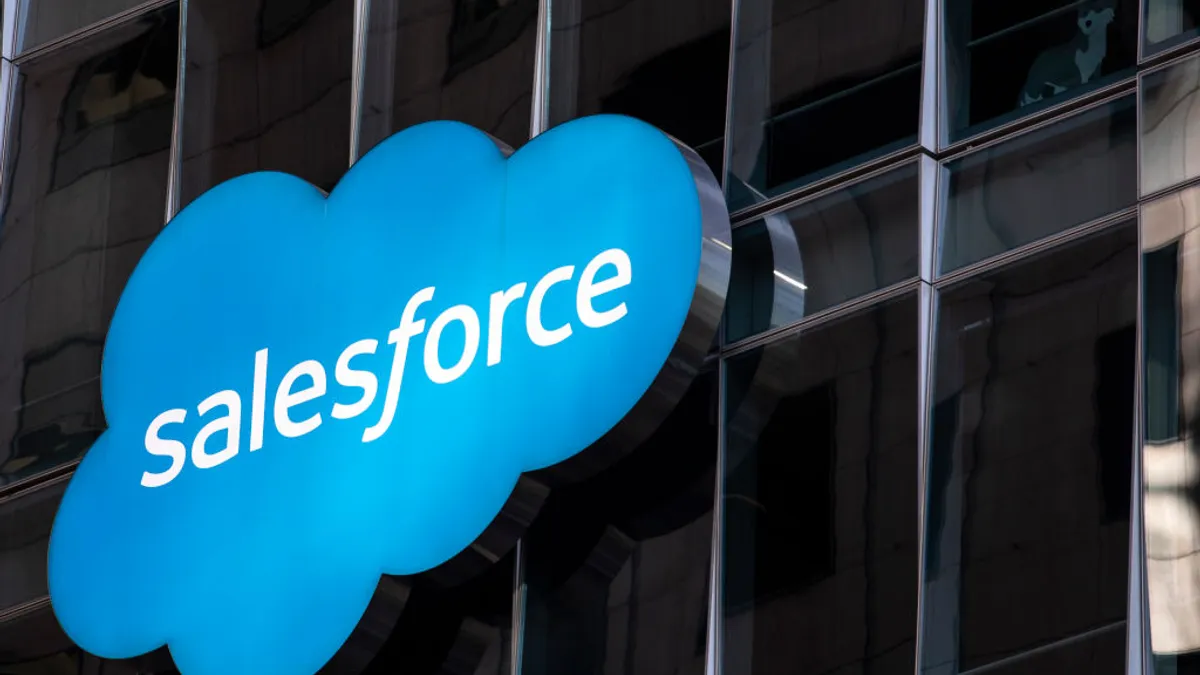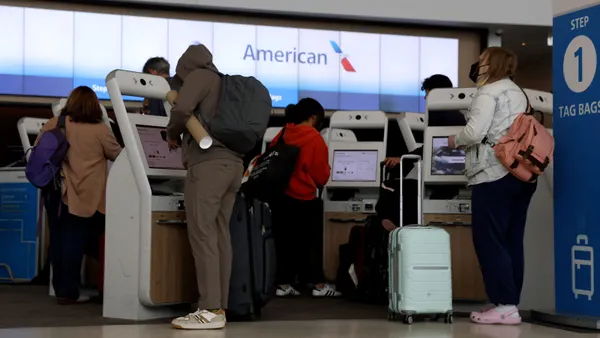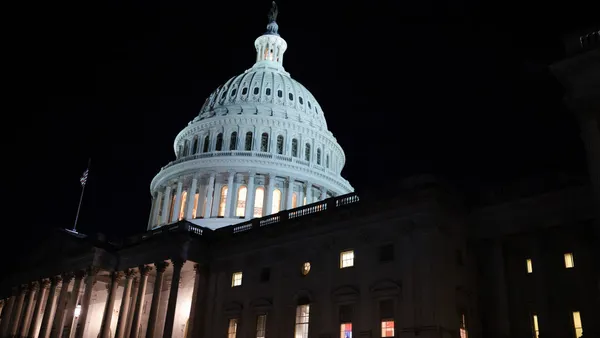Dive Brief:
- Salesforce felt the weight of a slowing economy during the third quarter of 2023, as customers moved toward longer sales cycles and enacted additional approval layers, CFO Amy Weaver said Wednesday.
- Macroeconomic conditions drove "intense customer scrutiny on every investment dollar to ensure the highest return possible," said CFO Amy Weaver, speaking Wednesday during the company's Q3 earnings call, for the period ending Oct. 31.
- The company Co-CEO Bret Taylor will depart the company after the fiscal year closes on Jan. 31, CEO Marc Benioff said during the call. Taylor, who joined Salesforce in 2016, became co-CEO last year.
Dive Insight:
Analysts have projected tech spending will largely withstand the pressures of adverse economic conditions. Leaders might look elsewhere for places to cut in a pinch.
But even Salesforce has felt the pressure as the economy reeled. A massive software provider known as a staple for large organizations, the company is a top contender in multiple tool categories: primarily its flagship CRM tool but also in cloud, communications and marketing.
Despite difficult conditions in the third quarter of 2023, Salesforce grew its third-quarter revenue 14% year-over-year, bringing in $7.84 billion, the company said Wednesday.
In Q3, scrutiny over spending was most pronounced in U.S. and major European markets, but Japanese customers remain more resilient, said Weaver during the call, according to a SeekingAlpha transcript.
Spending resistance varied by sector. Retail, consumer goods, and communications and media were the hardest-hit verticals; travel and hospitality, manufacturing, automotive and energy were more resilient, Weaver said.
Software spending is likely to see the biggest growth across IT categories in 2023, according to a Gartner forecast. Businesses will grow their software spending by 11.3% next year, compared to 5.1% growth in overall IT expenditures.
Yet Salesforce is not alone in seeing some resistance in enterprise technology spending.
Security provider CrowdStrike said in its most recent earnings call that, while enterprises are not cutting cybersecurity spending in 2023, some deals are taking longer to close. Smaller organizations are delaying deals, increasing the average time to close those deals by 11%, according to CrowdStrike co-founder and CEO George Kurtz.















